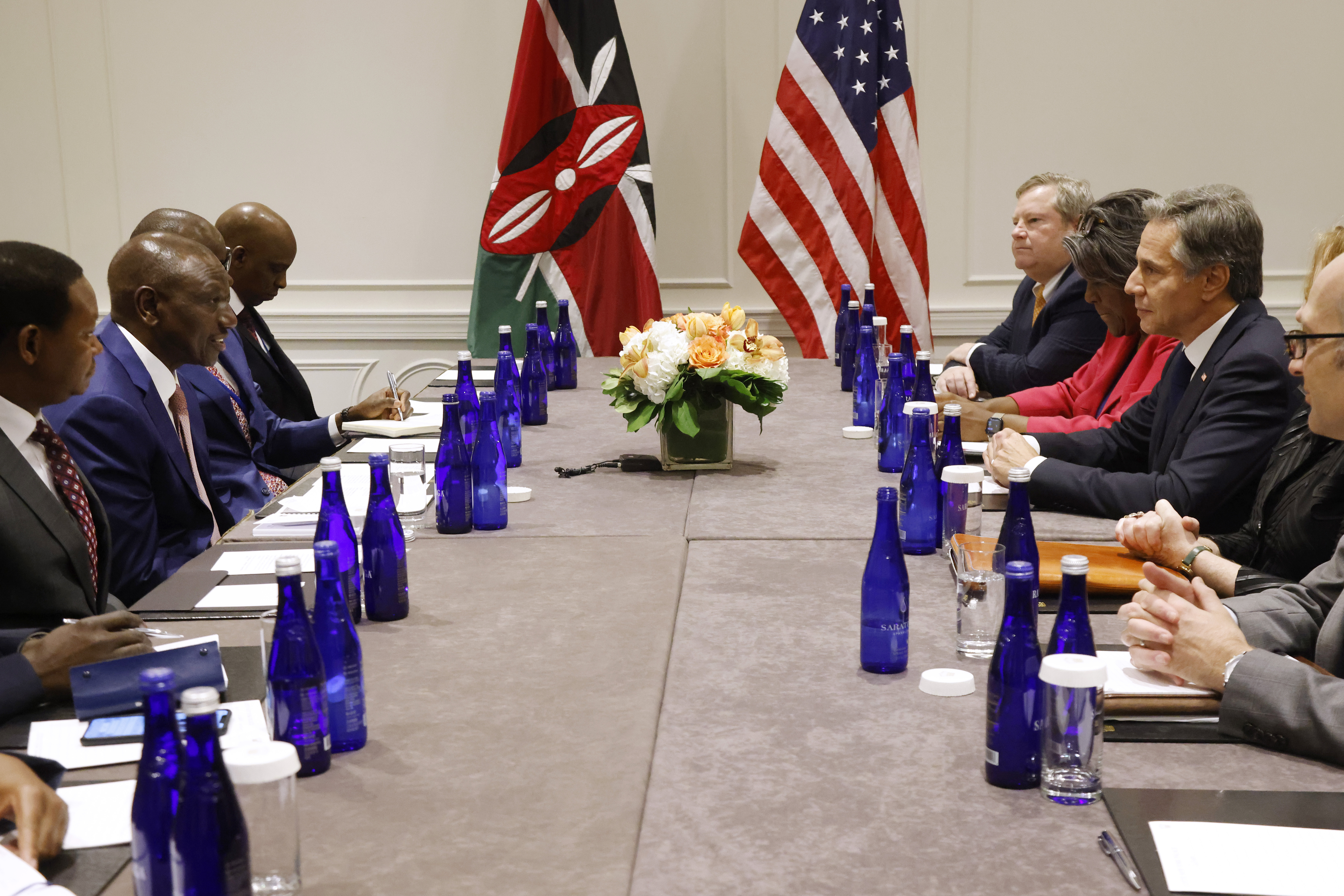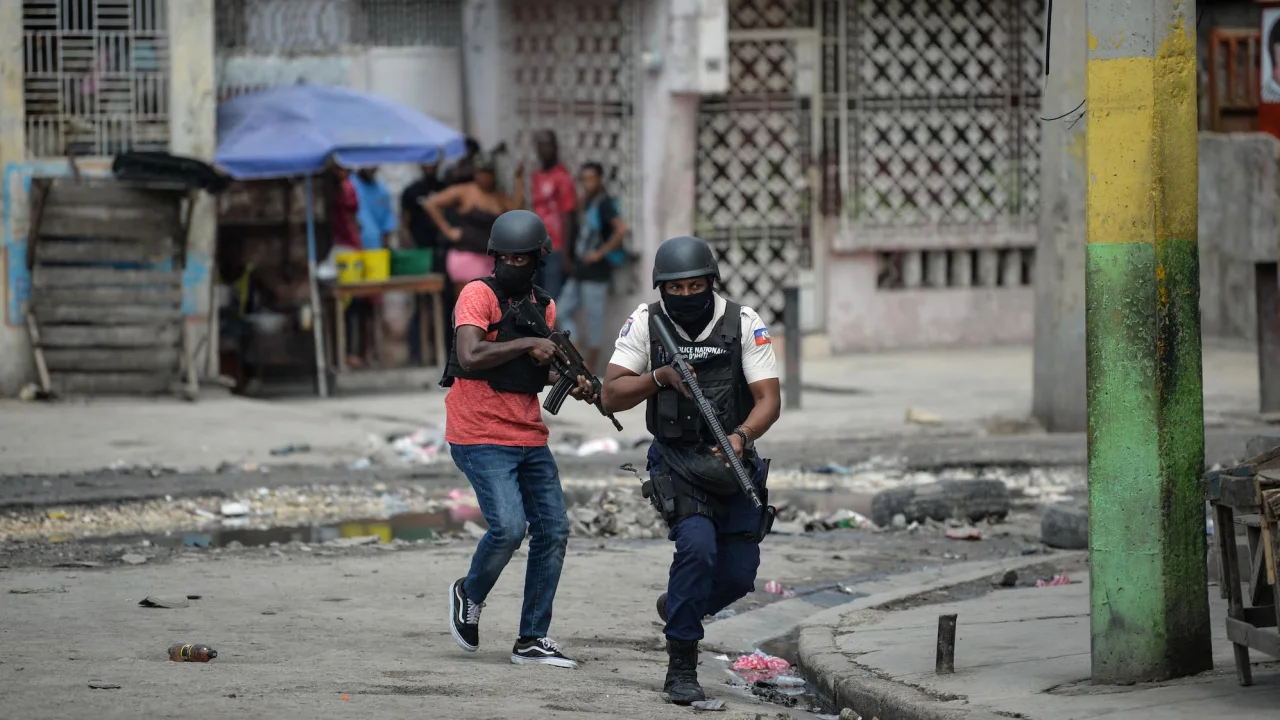U.N. Security Council Approves Multinational Armed Force Led By Kenya To Assist Haiti
In a significant move, U.N. Security Council approves Multinational Armed Force led by Kenya to assist Haiti, marking the first deployment of such a force to the troubled Caribbean nation in nearly 20 years.
Author:Dexter CookeReviewer:Hajra ShannonOct 04, 20235K Shares268K Views

In a significant move, U.N. Security Council approves Multinational Armed Force led by Kenya to assist Haiti, marking the first deployment of such a force to the troubled Caribbean nation in nearly 20 years.
This decision comes as Haiti grapples with escalating gang violence and a desperate need for stability.
Resolution Approval
The resolution, drafted by the United States and Ecuador, received overwhelming support with 13 votes in favor and two abstentions from China and the Russian Federation.
The mandate of the force is set for one year, with a mandatory review after nine months. Funding for this non-U.N. mission will come from voluntary contributions, with the United States pledging up to $200 million to support the initiative.
The decision came nearly a year after Haiti’s Prime Minister Ariel Henry urgently requested the immediate deployment of an armed force to help quell the surge in gang violence and restore security, enabling Haiti to conduct long-delayed elections.
The US and UN Secretary General Antonio Guterres have both forcefully pushed the international community to support such a mission. Thirteen council members voted in support of the measure, with Russia and China abstaining.
The country’s National Police, with only about 10,000 active officers in a population of over 11 million, has struggled to combat the powerful gangs.
International Solidarity
Haiti’s Foreign Affairs Minister, Jean Victor Généus, expressed gratitude for the international solidarity demonstrated through this decision, describing it as a glimmer of hope for a population that has suffered for too long.
He emphasized that addressing extreme poverty was crucial, as it serves as a breeding ground for gang recruitment.
“„More than just a simple vote, this is in fact an expression of solidarity with a population in distress. It’s a glimmer of hope for the people who have been suffering for too long.- Jean Victor Généus, Haiti’s foreign affairs minister
“„Socioeconomic development must be taken into account to take care of extreme poverty.- Jean Victor Généus, Haiti’s foreign affairs minister
While a specific deployment date has not been set, U.S. Secretary of State Antony Blinken indicated that the security mission to Haiti could deploy within a few months.
Kenyan Foreign Affairs Minister Alfred Mutua mentioned that the force could deploy within two to three months, potentially as early as January.
Key officers are also undergoing language training in French to facilitate effective communication on the ground.
Global Cooperation
Apart from Kenya, other countries such as Jamaica, the Bahamas, and Antigua and Barbuda have pledged to send personnel, showcasing global cooperation in addressing Haiti’s crisis.
The force aims to strengthen local security forces and reinforce the Haitian National Police in their fight against the gangs that have terrorized the country.
While the approval of the resolution is a significant step, challenges lie ahead. The resolution emphasizes the importance of preventing abuse, adopting environmental controls, and fostering political solutions in Haiti.
The force's arrival is eagerly awaited, as it is expected to restore peace and security, allowing the nation to conduct essential elections and pave the way for a more stable future.
Final Thoughts
The United Nations Security Council's decision to send a multinational force to Haiti represents a significant step toward addressing the country's ongoing crisis.
It highlights the international community's commitment to providing assistance where it is urgently needed.
However, it also underscores the complex challenges that lie ahead as this force endeavors to bring peace and stability to a nation in turmoil.
Haiti's path to recovery remains challenging, but this deployment offers a glimmer of hope for its beleaguered population.

Dexter Cooke
Author
Dexter Cooke is an economist, marketing strategist, and orthopedic surgeon with over 20 years of experience crafting compelling narratives that resonate worldwide.
He holds a Journalism degree from Columbia University, an Economics background from Yale University, and a medical degree with a postdoctoral fellowship in orthopedic medicine from the Medical University of South Carolina.
Dexter’s insights into media, economics, and marketing shine through his prolific contributions to respected publications and advisory roles for influential organizations.
As an orthopedic surgeon specializing in minimally invasive knee replacement surgery and laparoscopic procedures, Dexter prioritizes patient care above all.
Outside his professional pursuits, Dexter enjoys collecting vintage watches, studying ancient civilizations, learning about astronomy, and participating in charity runs.

Hajra Shannon
Reviewer
Hajra Shannona is a highly experienced journalist with over 9 years of expertise in news writing, investigative reporting, and political analysis.
She holds a Bachelor's degree in Journalism from Columbia University and has contributed to reputable publications focusing on global affairs, human rights, and environmental sustainability.
Hajra's authoritative voice and trustworthy reporting reflect her commitment to delivering insightful news content.
Beyond journalism, she enjoys exploring new cultures through travel and pursuing outdoor photography
Latest Articles
Popular Articles
